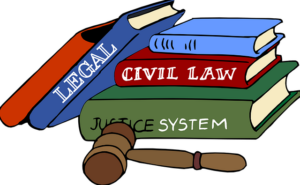When immigrants come to the UK, they must provide translations for documents written in languages other than English. These translations must be legalized and conducted by accredited professionals from bodies like the Institute of Translation and Interpreting (ITI) or the Chartered Institute of Linguists (CIOL). The process involves verifying the translator's credentials and affixing a stamp or seal from a public notary or solicitor. For instance, a Polish individual needed accurate English translations of educational documents for their UK visa application, which were provided by a reputable legalized translation service UK. Similarly, a Brazilian family required certified translations of personal records to support their settlement in the UK, both of which were facilitated through authorized translation services that meet the strict standards set by the Home Office and the Foreign and Commonwealth Office (FCO). Utilizing such services ensures that all translated documents are accepted and recognized as authentic within the legal and administrative framework of the UK.
When navigating the complex journey of immigration, documentation becomes a pivotal keystone. A crucial aspect involves securing legalized translations for foreign documents, ensuring they are recognized and accepted by the authorities. In the UK, the significance of this process cannot be overstated; it is where Legalised Translation Services UK come into play, acting as a vital bridge for immigrants. This article delves into the necessity of these services, elucidating the legalization process, the role of accredited translators, and how these elements align with Home Office requirements. It also offers insights into the differences in translation frameworks across nations, tips for choosing trusted providers, and real-life success stories. With a focus on precision and compliance, understanding the intricacies of legalized translations is key to a smoother immigration experience.
- Understanding the Necessity of Legalized Translations for Immigration
- The Role of Legalized Translation Services UK in Immigrant Applications
- The Legalization Process Explained: A Step-by-Step Guide
- Common Documents Requiring Legalized Translations for Immigration
- Accredited Translators: Their Credentials and Importance in Legal Settings
- Comparing the UK's Legalized Translation Framework with Other Countries
- Navigating the Home Office Requirements for Document Authentication
- Tips for Selecting Reliable Legalized Translation Services in the UK
- Case Studies: How Legalized Translations Facilitated Successful Immigration Applications
Understanding the Necessity of Legalized Translations for Immigration

When navigating the complexities of immigration, individuals often encounter a myriad of bureaucratic requirements that can be daunting, particularly when dealing with documentation in languages other than English or Welsh. Legalized translations play a pivotal role in this context. These are not mere linguistic interpretations but certified translations that attest to the accuracy and authenticity of the translated content. In the UK, legalised translation services are indispensable for immigrants as they ensure that all foreign documents, such as birth certificates, educational credentials, and legal records, meet the stringent standards set by UK immigration authorities. These translations must be accompanied by a statement from the translator declaring that the translation is complete and accurate to the best of their knowledge and belief. Furthermore, the translated document often needs to bear an apostille or similar certificate of authenticity, which legalized translation services in the UK can provide. This certification process verifies the translator’s identity and qualifications, thus safeguarding the integrity of the documents and facilitating a smoother immigration process. Immigrants must therefore engage with professional legalised translation services UK to avoid delays or complications that could arise from improperly translated documents. This due diligence not only demonstrates respect for UK legal protocols but also enhances the chances of successful immigration outcomes.
The Role of Legalized Translation Services UK in Immigrant Applications

Navigating the complex process of immigration requires meticulous attention to detail, particularly when it comes to documentation. Within this intricate procedure, the role of Legalised Translation Services UK becomes pivotal. These services offer more than mere linguistic conversion; they provide accurate and certified translations that are legally recognised by authorities across the United Kingdom and beyond. For immigrants, having personal documents, legal certificates, academic records, and other essential papers accurately translated and bearing an apostille or equivalent certification is not just a formality but a critical step towards successful application outcomes. The Legalised Translation Services UK ensure that each translation adheres to stringent standards set by the relevant authorities, thereby facilitating seamless processing of immigration applications. This legal validation verifies the authenticity and reliability of the translated content, reducing potential delays or complications that might arise from language barriers or mistranslations. Immigrants benefit from the expertise of these services, which are adept at navigating the diverse linguistic requirements and legal frameworks that govern immigration procedures, thus ensuring that their applications are supported by translations that are both legally compliant and accurately convey the intended meaning. This commitment to precision and adherence to legal protocols is instrumental in safeguarding the rights and prospects of individuals seeking a new life in the UK.
The Legalization Process Explained: A Step-by-Step Guide

When navigating immigration processes, obtaining trusted legalized translations is a critical step to ensure your documents are recognized and accepted by authorities in the UK or when returning to your home country. The legalization process for translations involves several stages that certify the authenticity of the document and its translation. Initially, the translation must be carried out by professional legalised translation services in the UK. These experts specialize in translating official documents and possess the necessary accreditations to guarantee their work aligns with legal standards. Once the translation is complete, it needs to be certified by a relevant authority, such as the Professional Translators’ Coordination (PTC) or the Chartered Institute of Linguists (CIOL). This certification verifies the translator’s qualifications and the translation’s accuracy.
Subsequently, the legalized translation—along with the original document, if applicable—must be submitted to a notary public for notarization. The notary will attest to the authenticity of your signature on the translation and the translator’s certification. Following this, the notarized translation is then taken to the foreign and Commonwealth office (FCO) legalisation service. Here, UK Home Office officials will review and stamp the document, confirming that it meets the UK’s standards for use in immigration processes or other official matters. This final step concludes the legalization process, ensuring your translated documents are recognized and accepted by immigration authorities within the UK. Utilizing reputable legalised translation services UK is pivotal to a seamless and legitimate immigration experience.
Common Documents Requiring Legalized Translations for Immigration

When embarking on the immigration process, individuals often encounter a multitude of forms and documents that require meticulous attention to detail, especially when these documents are in languages other than English or Welsh. In such cases, legalised translation services in the UK play a pivotal role. Legalised translations ensure that official papers like passports, birth certificates, educational credentials, marriage certificates, and police clearance certificates are accurately translated and hold the same legal weight as their original versions. The translation process for immigration purposes must adhere to strict guidelines; it’s not merely a matter of linguistic interpretation but also one of maintaining the document’s integrity and authenticity. Professional legalised translation services in the UK, such as those accredited by the relevant authorities like the Institute of Translation and Interpreting (ITI) or the Association of Translation Companies (ATC), are equipped to provide this level of service. They offer translations that are legally recognised, which is crucial for successful immigration applications. Additionally, documents such as medical records, employment contracts, and corporate registration papers may also require legalised translation when supporting an application for residency or citizenship. The translator’s role is to convey the precise meaning of the original text without alteration, with a certified statement affirming the accuracy of the translation. This process not only facilitates the immigration procedure but also instils confidence in the authorities reviewing the application that all documents submitted are authentic and compliant with the legal requirements set forth by UK immigration laws.
Accredited Translators: Their Credentials and Importance in Legal Settings

Navigating immigration processes often necessitates the submission of legalised translation services in the UK, where documents must be translated into English by accredited translators. These professionals are not just linguistically proficient; they hold specific credentials that validate their expertise within legal settings. In the UK, the credential most commonly recognized is membership or fellowship with the Institute of Translation and Interpreting (ITI), which guarantees a high standard of professional excellence and reliability in translations. Accredited translators also often possess certification from the Chartered Institute of Linguists (CIOL) or are registered with the Association of Translation Companies (ATC). These qualifications underscore their ability to provide precise and accurate legalised translation services UK-wide, which is paramount for immigration purposes. The importance of accuracy in translations cannot be overstated; a single error can lead to complications or even delays in an individual’s immigration process. Therefore, when seeking legalised translation services in the UK, it is crucial to engage with translators who have the necessary credentials to ensure that translations are not only faithful to the original text but also meet the stringent requirements set by legal bodies and immigration authorities.
Comparing the UK's Legalized Translation Framework with Other Countries

In the context of immigration, legalized translation services in the UK are pivotal for individuals whose documents are drafted in languages other than English. The UK’s framework for legalized translations is stringent and requires translators to be accredited by professional bodies such as the Institute of Translation and Interpreting (ITI) or the Chartered Institute of Linguists (CIOL). This ensures that translated documents meet the high standards expected by governmental institutions and are legally recognized. The process of legalization involves a series of checks and validations, including verification of the translator’s qualifications and an affixation of a stamp or seal by a public notary or solicitor. This meticulous approach enhances the integrity and reliability of translated documents in legal and administrative contexts, particularly within immigration proceedings.
Comparatively, other countries have their own systems for legalized translations, though they may differ significantly. For instance, in Germany, the “Vereidung” or sworn translation is a legally recognized form of translation where the translator declares that their translation is accurate and complete. In France, translators must be certified by the Ministry of Justice to provide official translations. These countries’ systems underscore the importance of legalized translations in immigration and other legal matters, much like the UK’s Legalized Translation Services UK. However, each country has its unique protocols, reflecting diverse legal traditions and frameworks that govern the recognition of foreign documents. Immigrants to the UK must thus navigate these variations when compiling their documentation for a smooth and legally compliant immigration process.
Navigating the Home Office Requirements for Document Authentication

When individuals are in the process of immigration, ensuring that all documents are accurately translated and properly authenticated is paramount. The Home Office in the United Kingdom has stringent requirements for document authentication to safeguard the integrity of the immigration process. A critical step in this procedure is obtaining legalised translation services from providers adept at navigating these regulations. These services go beyond mere linguistic equivalence; they provide certified translations that are legally binding and recognised by the Home Office. The legalisation process typically involves the Foreign and Commonwealth Office (FCO) legalising a translation to confirm its authenticity. This is essential as it ensures that translations meet the UK’s statutory requirements for immigration purposes. Prospective immigrants must engage with professional legalised translation services in the UK, such as those offering certified translations of passports, educational certificates, marriage certificates, and other vital documents. These translations are stamped and sealed, guaranteeing their acceptability by the Home Office and facilitating a smoother immigration process. By opting for reliable legalised translation services UK-based, individuals can mitigate potential delays or complications that may arise from document authentication issues. This due diligence is crucial in demonstrating commitment to the rules set forth by the UK government and in contributing to a transparent and efficient immigration system.
Tips for Selecting Reliable Legalized Translation Services in the UK

When immigrating to the UK, legalised translation services play a pivotal role in ensuring that official documents are accurately translated and recognised by authorities here. Selecting a reliable service is crucial for maintaining the integrity of your immigration process. Firstly, research potential translation services with a strong focus on their experience in legalised translations for immigration purposes. Look for providers who are accredited by relevant professional bodies, such as the Institute of Translation and Interpreting (ITI) or the Association of Translation Companies (ATC). These accreditations underscore their commitment to quality and adherence to industry standards.
Furthermore, verify the translators’ qualifications and expertise in your specific language pair. A translation service with a diverse team of linguists, including native speakers who are well-versed in legal terminology, will provide more precise translations. Ensure that the service offers a certificate of accuracy alongside each legalised translation, as this is often required by UK immigration authorities to confirm the authenticity of the document. Additionally, check for positive reviews and testimonials from previous clients who have used these services for immigration-related tasks. By taking these steps, you can find a trustworthy legalised translation service in the UK that will support your immigration application with precise and authoritative translations.
Case Studies: How Legalized Translations Facilitated Successful Immigration Applications

In the realm of immigration, where documentation is paramount, legalized translations play a pivotal role in ensuring applicants meet the stringent requirements set by immigration authorities. For instance, an individual from Poland seeking residency in the UK faced a critical hurdle when his educational certificates were only available in Polish. Utilizing legalized translation services in the UK, he had his credentials accurately translated and certified as required by the Home Office. This process verified that the translations were both precise and authentic, thus facilitating a smooth immigration application. Another case involved a family from Brazil who needed to present birth certificates and marriage records for their visa applications. The documents were originally in Portuguese, but with legalized translation services UK, the family received certified translations that were recognized by the UK Border Agency. These translations were essential as they provided clear and accurate information, which was indispensable for the successful processing of their application. Both cases highlight the importance of engaging professional legalized translation services in the UK to navigate the complexities of immigration with the necessary documentation.
In conclusion, navigating the complexities of immigration requires meticulous attention to detail, particularly with documentation. The necessity of legalized translations cannot be overstated for those seeking to move or reside in the UK; they are a cornerstone of successful applications. Utilizing professional legalized translation services UK is paramount, as these services ensure that all translations meet stringent home office requirements and maintain accuracy and authenticity. The legalization process, when followed correctly, lends credibility to translated documents, which can significantly influence immigration outcomes. Prospective immigrants should take heed of the detailed guidance provided in this article, from understanding the role of accredited translators to learning how to select a reliable service provider. By adhering to these guidelines and employing the services of competent legalized translation providers, individuals can confidently traverse the immigration process with the assurance that their translated documents will be recognized and accepted by UK authorities.
